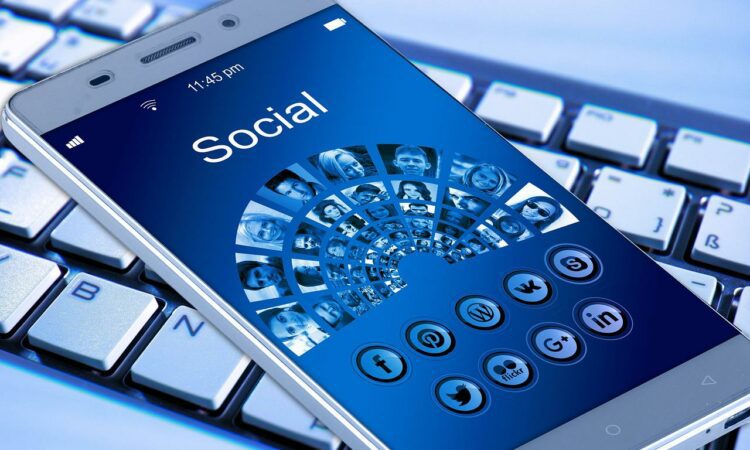Edwin Law
2022-04
What do you often see when you check on your favorite social media? Some deep and meaningful sharing from close friends? Or a long list of postings from your “friends”, with photos of them visiting high-end restaurants, attending luxurious weddings, and having extravagant vacation trips? How does exposure to these social media affect your emotional health in the long run?
There is an open myth about these social media companies and their business strategic model. That is, their users are the buyers, and those selling ads are their customers.
As the users stay on their platforms longer, the better it serves to the advantage of the social media companies. Not only the time used, with the higher probability of clicking on the ads, could also advance the social media companies to know the users. In other words, the ultimate goal of these companies is to encourage the users to indulge in using their platforms.
In recent years, these social media companies are adding more features to encourage users to stay on longer. Some insiders claimed that the ideas “infinite scroll” and “pull-to-refresh” originated from the slot machines found in casinos. [1]
On social media more often people like to compare themself with others. This could lead to self-esteem diminishing and confusion as to how to define oneself. It is more easily leading to depression and emotional issues.
Though we are not familiar with other people, we forget the fact in real life they are not as perfect as portrayed in social media. Experts believe social media causes the “Feeling of Missing Out” (FOMO) synonym. In other words, people suffering from FOMO feel that others are more privileged and or prestige than themselves. They feel missing something. It is not a sense of motivation “Let’s go to do better ”, but sadness about not having what others own.
Furthermore, good news usually does not spread out as rapidly as false ones, especially gossip inciting hatred. Being constantly exposed to negativity coupled with the “Echo Chamber Effect”, users can go into a prolonged state of emotional anxiety, fear, and tension.
There are still many positive postings but often get under their competitors.
A study shows negative posts induce more negative postings.
A week in January 2012, Facebook analysts selected almost 700,000 users as “guinea pigs”.
They split the users into three groups.
The first group was viewing mostly negative postings, the second group neutral, and the third group mostly positive postings. The results were the “negative postings” group shared more negative posts than the other two groups.[2]
To cure one’s emotional problems brought forth by social media, the most straightforward suggestion is to reduce the usage or even delete the accounts. Someone may wonder, how can we survive without social media nowadays?
Certainly. we can use other means to communicate with each other. Studies found that using video conferencing platforms is a better stimulation of our emotions.[3] These platforms can effectively help those who are suffering from depression and loneliness, allowing them to communicate face-to-face with people far away; especially family members whom they have not seen for a long time.
A positive outcome of the pandemic is many people are now fluently using these video-conferencing platforms. Instead of lingering on social media, it is great to converse with friends and families using these video-conferencing tools. As we are entering the post-pandemic phases, we could seize more good opportunities to meet.
“I have the right to do anything,” you say—but not everything is beneficial.
“I have the right to do anything”—but not everything is constructive.” (1 Corinthians 10:23)
There is nothing wrong when using social media. But we have to be cautious if it is beneficial to ourselves or others.
The scripture says, “….whatever is true, whatever is noble, whatever is right, whatever is pure, whatever is lovely, whatever is admirable—if anything is excellent or praiseworthy—think about such things.” (Philippians 4:8)
Instead of indulging in negative or hateful information, shall we be wisely spending more time thinking about positive and encouraging matters
[1] Social media copies gambling methods ‘to create psychological cravings’ (www.theguardian.com/technology/2018/may/08/social-media-copies-gambling-methods-to-create-psychological-cravings)
[2] Everything We Know About Facebook’s Secret Mood-Manipulation Experiment – The Atlantic (www.theatlantic.com/technology/archive/2014/06/everything-we-know-about-facebooks-secret-mood-manipulation-experiment/373648/)
[3] Using Skype to Beat the Blues: Longitudinal Data from a National Representative Sample – ScienceDirect (www.sciencedirect.com/science/article/abs/pii/S1064748118305359)

